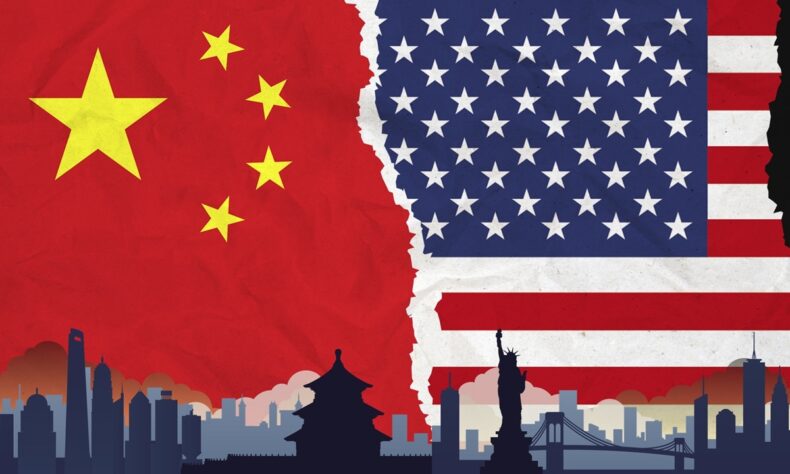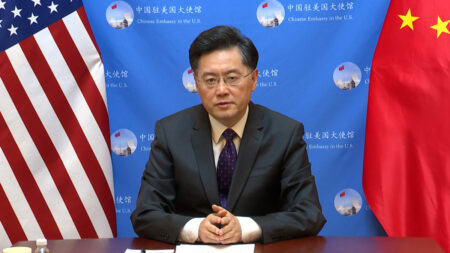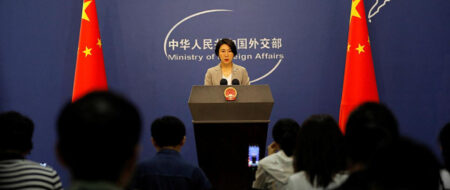The U.S. is deliberately aiming to expand its restrictions on the export of chipmaking equipment to China. For this, the U.S. is seeking corporation with countries like Japan and the Netherlands. As a result, domestic suppliers for chipmaking equipment are rising as a substitute for the export companies of the past.
United States Seeking Help From Japan and Netherlands
Although the U.S. has not gained the absolute support of other countries to hinder the tech sector of China through severe export restrictions, Washington is firm enough to make unilateral efforts to play havoc with the tech ambitions of China. In a similar endeavour, the U.S. made a deal with Japan and the Netherlands on January 27, 2024, to gain their support in intensifying restrictions on the exports of state-of-the-art semiconductor manufacturing equipment to China.

The equipment included immersion lithography machines from ASML and Nikon, Dutch and Japanese firms, respectively. According to reports, the Biden administration is also considering suspending Huawei, the Chinese tech giant, from all U.S.-developed technology and U.S. exports. Washington has also halted approving licenses for exports.
Impacts of the Restrictions
The Biden administration of the U.S. placed heavy restrictions on the exports of semiconductor chips to China with the motive of maintaining its leadership in the technical sector. In accordance with the sanctions, the firms using US semiconductor technology cannot sell or export the produced chips to China. The rules imposed by Washington also restrict its citizens, green-card holders, and residents from working in chip companies owned by China.
Why Restrictions over China?
A historic trade act named the ‘US-China Relations Act of 2000’’ was signed by the then President of the U.S., Bill Clinton, in 2000. This Act permitted Beijing to establish permanent normal trade relations with the U.S. and resulted in a gigantic trade rise of $231 billion a year, which is one of the prime reasons for propelling China as the leading manufacturing capital globally.

Now that the potential of Beijing to originate and manufacture state-of-art technologies has surpassed that of the U.S., the Biden administration is aiming to knock down the power of Beijing on the global geopolitical stage. The high-tech chips are needed for boosting military technology. However, China has a history of cutting the Gordian knot, and the export restrictions by the U.S. may result in a blessing in disguise for the Chinese domestic suppliers of equipment essential to chip manufacturing.
Chinese Domestic Suppliers
The only producer of semiconductor manufacturing lithography devices in China, Shanghai Micro Electronics Equipment (SMEE), has made machines that are capable of chip production at the 90 nm standard. The devices are suitable enough to generate low-end chips used in power management tasks. It is the only efficient competitor to the globally eminent producer of lithography machines from the Netherlands, ASML Holding NV, but still incompetent when compared with its Japanese counterparts or ASML.

Naura Technology Group Co., Ltd. is another domestic substitute for chip equipment manufacturing. It produces etching equipment aiming to substitute Lam Research Corp. (LRCX.O) and Applied Materials Inc. (AMAT.O) of the U.S. and Tokyo Electron Ltd. (8035.T) of Japan. The company also produces deposition machines, which use chemicals and gases for the silicon wafers in the process of chipmaking. Its devices support 55 nm and 28 nm chipmaking technology and can serve the 14 nm to 28 nm process nodes of the deposition machines, still being behind the global leading firms in chip manufacturing.
Like Naura, the Advanced Micro-Fabrication Equipment Inc. China, AMEC also develops etching equipment that is utilised to remove excess material from the surface of the silicon wafers and uses 5 nm technology to generate the chips. Although it is a potential competitor of Lam Research and Applied Materials of the U.S., the market share of AMEC is surpassed by its overseas rivals. In 2021, AMEC generated revenues of $444.9 million, which is around 2.5% of the revenue generated by Applied Materials.













